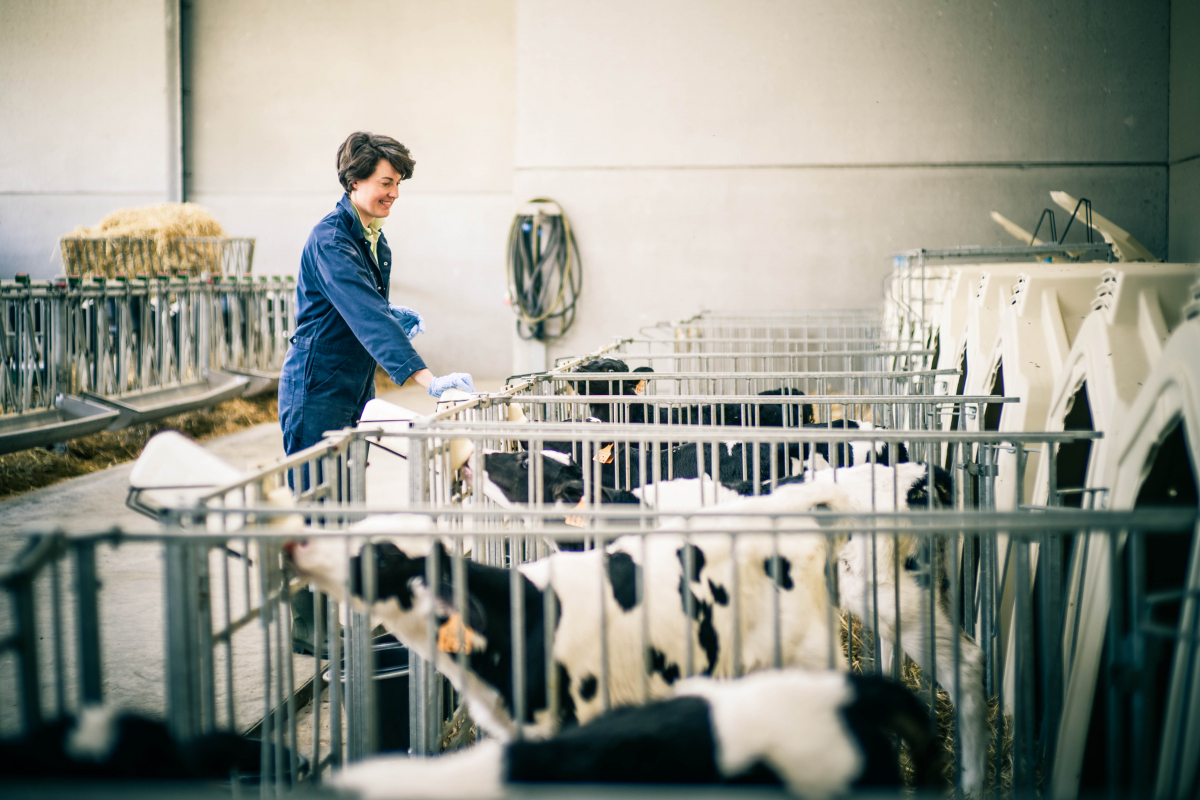Calves need the best possible start in life, and cows need the best possible care at calving to ensure a good profitable lactation.
Coccidiosis and cryptosporidiosis in dairy are caused by infection with one-celled (protozoan) intestinal parasites. These parasites can spread quickly on your farm and are very hard to eradicate. The life cycle with all their associated developmental stages takes place both inside the host animal (endogenous) and in the external environment (exogenous: oocysts). Endogenous stage: The one-celled parasites target the intestines, where they multiply in the dairy host cells and cause severe lesions. Exogenous stage
-
Dissemination in the environment: excretion of the oocysts together with the droppings of the animals.
-
Development of the oocysts to form a sporulated oocyst: this takes about 1 to 2 days under ideal conditions.
-
Oral contamination: uptake of the infective, sporulated oocysts.
Different drugs are available for the prevention and treatment of coccidiosis and cryptosporidiosis. These products are generally given in feed and drinking water to prevent acute disease and to inhibit the economic loss which are often associated with subacute infections. Prophylactic use is preferred because most damages occur before signs appear. The main goal of cleaning and disinfection is to break through the fecal-oral transmission of the microorganisms and to keep the infection pressure low because it kills the parasites when they are in the environment (during the exogenous stage). An effective cleaning and disinfection procedure is in this way a very important tool to help fighting against coccidiosis and cryptosporidiosis on your farm.
